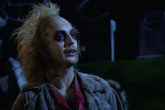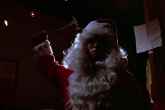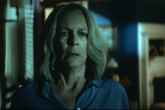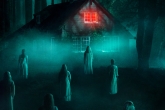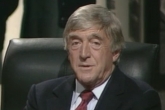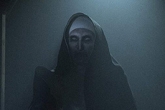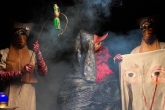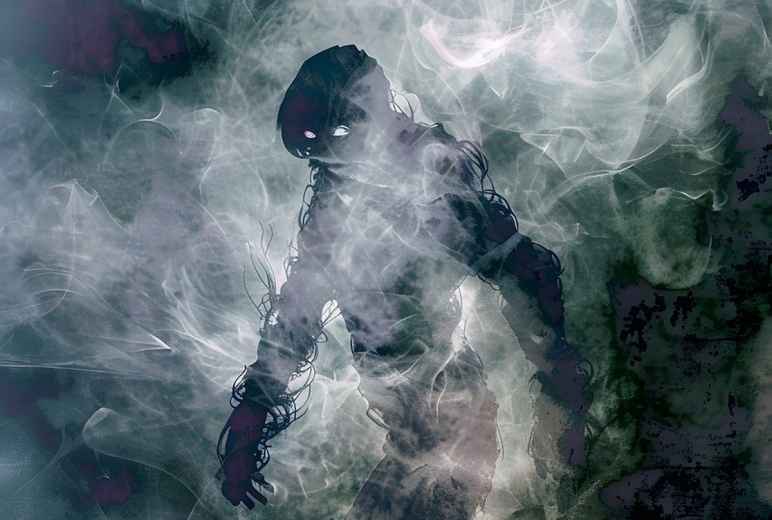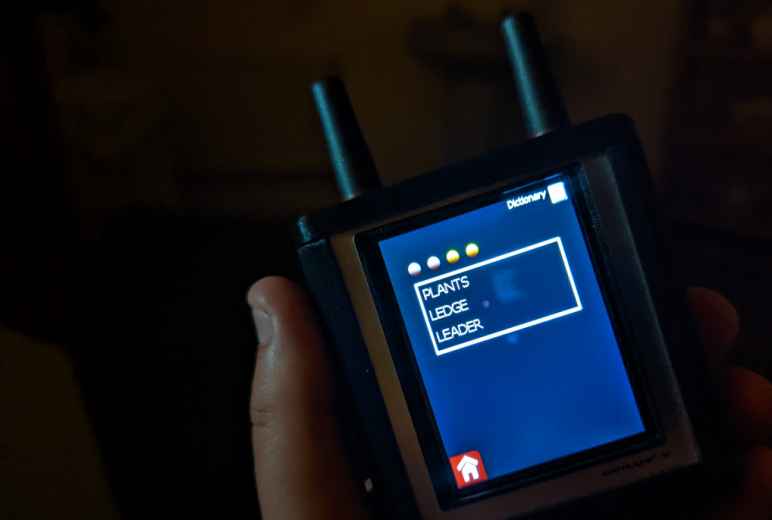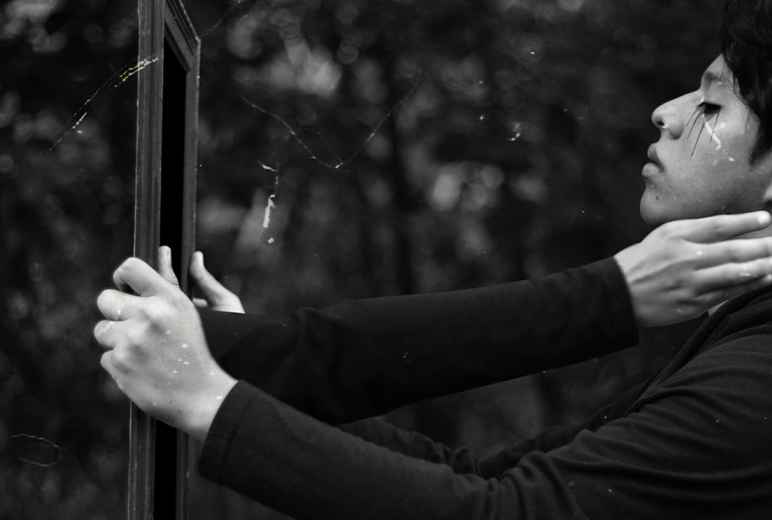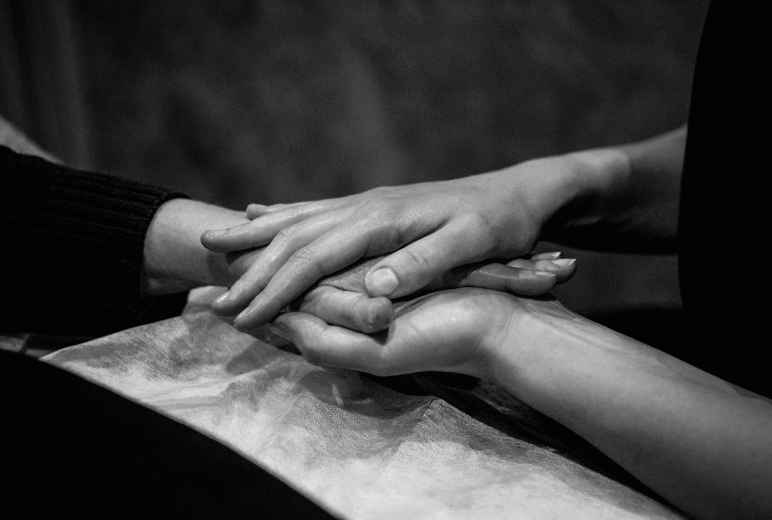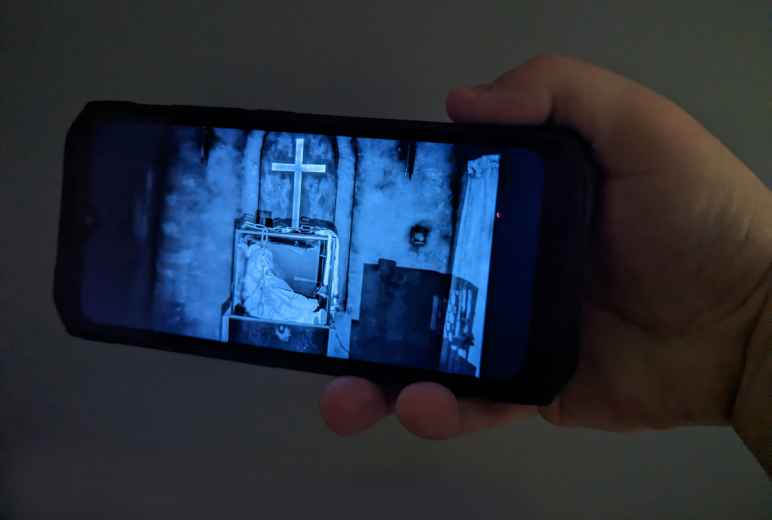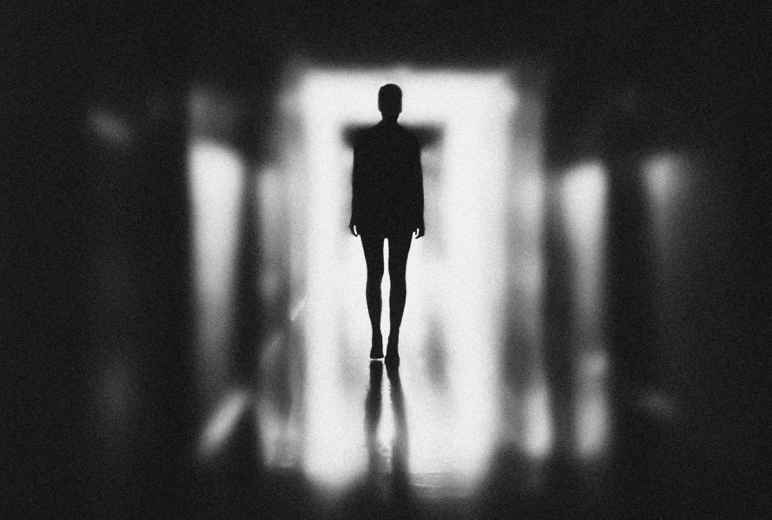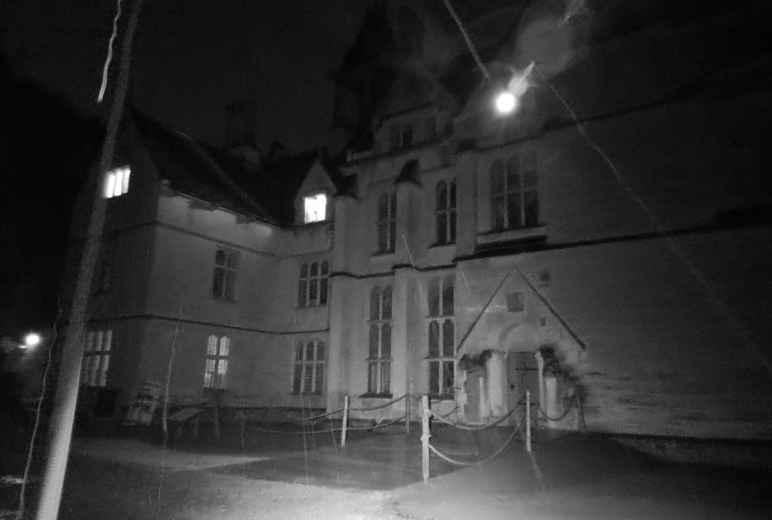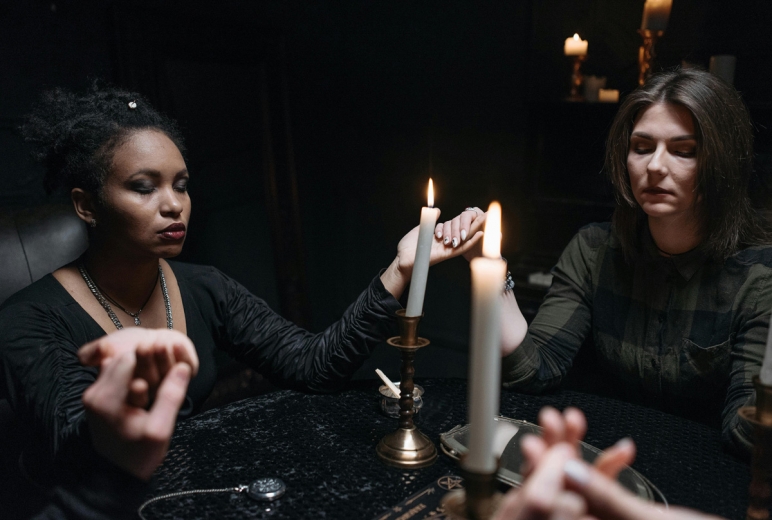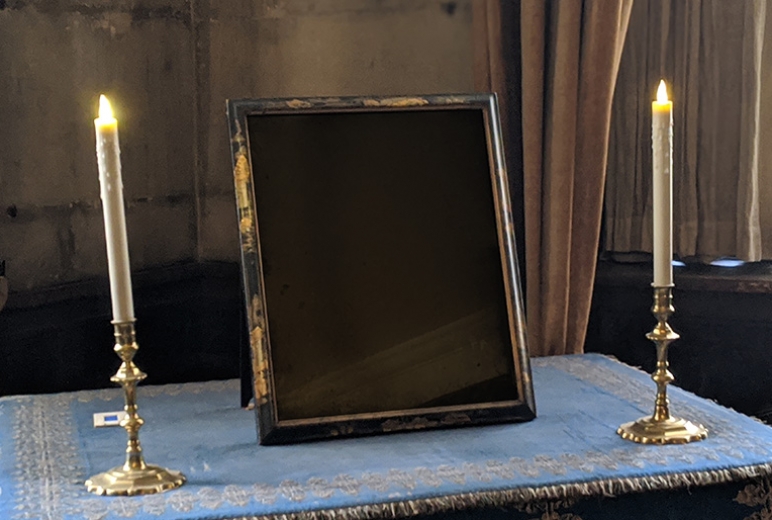By Edwin Crowe February 04, 2019 6:00 AM ‐ Long Reads
How To Write A Successful NoSleep Horror Story
This article is more than five years old.
I've been writing stories for NoSleep on Reddit for six years as u/ecrowe. I've posted over 160 stories and had a modicum of success. A handful of them have been produced and featured on the NoSleep Podcast. I've also had a couple of stories optioned for TV/film (not seen the light of day - yet).
It all started because I searched for horror podcasts, found the NoSleep Podcast and got hooked. I devoured all the back catalogue. Some of the stories back then were very raw and evoked a feeling of nostalgia for when I used to read books on the paranormal as a child.
I loved writing stories when I was in infant school, but it quickly became clear my spelling and grammar were terrible. In high school, I was in the bottom class of English and never learned what a verb or noun was, or even how to use commas and sentence structure correctly. It's kind of shocking I finished school at sixteen without reading a single book. To top it off, I'm dyslexic and have OCD, meaning reading for me is extremely hard. My reading speed is around fifteen pages an hour, assuming an average sized typeface. I read my first book at seventeen, 'Discworld: The Colour Of Magic'. I read a total of ten books in my twenties. Even now, I think I've only read around thirty. It was the advent of Audible and the NoSleep Podcast that reignited the urge to want to write.
I posted my first story on r/libraryofshadows, unaware the NoSleep reddit existed. I had some upvotes and some very nice comments and haven't looked back since.
However, you've not come here to read my life history, you want to know what you can do to write a NoSleep story that works, one that people will enjoy reading and you will enjoy writing. Just know, if I can do it with my background in English and dyslexia, so can you.
Where To Start?
You obviously need an idea, but you also need to think about what style of story you want to write. There are two ways to write a NoSleep story.
- A scary/horrific experience
- A traditional story
The scary/horrific experience doesn't necessarily need to follow the standard story telling beats, as it is more a retelling of events that have happened. These tales don’t necessarily have an ending as such. 'The Smiling Man' is a good example of this. In this the author writes about meeting a peculiar man whose antics on one dark night scare the shit out of him. There is no story arc, there is no twist, no reveal, just a very creepy experience. It does exactly what it’s meant to, conjure up a sense of fear, the uncanny valley, and leave readers wondering if they would bump into The Smiling Man. In essence, it's stories like this that NoSleep was made for.
The other method is the traditional story. These now make up the bulk of NoSleep posts. It's a lot easier to get this wrong, as people expect certain things from this method of storytelling and it’s what I’ll be concentrating on in this article.
Why Am I Writing?
The first thing you need to consider is why are you writing in the first place. Is it because you want to write a novel? If it is, writing short stories is the perfect way to start. You don't want to dive into novel writing without first practicing the art. I made this mistake. I had what I thought was a great idea, I'd read a few novels, watched loads of horror films and thought "I can do that". I plowed through and finished the first draft. I then went back, started editing and realized how awful my writing was. It was a major disappointment. So that novel now lies on Dropbox never to be finished or read again.
If you want to write something for yourself, that is fine, but be honest in your motivation. If you are doing it because you want your work to be popular or indeed eventually write semi-professionally or professionally, you have to go about it differently. What interests you may not interest others, so bear that in mind when you think about subject matter and the approach you want to take. Thinking about subjects that are relevant and fresh will have a great impact on whether your story succeeds or not.
Where Do Ideas Come From?
This is the million-dollar question, and there is no one answer to this. On many occasions I've sat down in front of the computer and tried to force myself to come up with an idea. This has worked a few times, but the idea is usually small, riffing off of it can be quite cumbersome, and the end product is not as well thought out as it could be.
The stories I am most proud of have come from ideas that I've let ruminate for a while. The seed of these ideas can come from anywhere. One of my earlier stories, 'Moderated', is still my favourite. The idea for that came from an article my wife sent me. It was about employees of an online video streaming service not being given psychological help after having to watch horrific videos all day to moderate the platform.
My story 'Screaming Of The Cows' (the title is obviously a play on 'Silence Of The Lambs') came from a real life moment. I had to go into the loft at my mum's house one day, and I noticed a creepy rocking horse. I couldn't remember seeing it as a kid, so I asked her where it came from. She said it was made by my grandfather out of a child's coffin… I asked if it was used. She said she didn't know.
'There Is No Such Thing As Real Magic', came about after watching a TV show on the top 100 times magic had gone wrong. When you write more and more, you'll notice yourself thinking about writing. When you watch a film or read a book you'll think I wonder what would happen if X. That's the best way to mine ideas for me. This is why the main tip most authors will give you is read as much as humanly possible.
Sometimes though, the muse can visit randomly. The initial idea for my story 'I Met My Brother When I Was Ten' popped into my head two years before I wrote it. When I sat down to write, I'd think about it and try and develop the idea, but I couldn't grasp it fully, so I left it until one day all the pieces fell into place.
When I get an idea, I email myself with a quick outline. Stephen King says you should never write down an idea. He says the mind is like a colander, all the good ideas stay there, and all the bad ones fall out. I tend to agree, though I've had some ideas as I'm lying in bed and I would have certainly forgot if I didn't email myself! So, go with whatever works for you.
Blair Daniels, a popular NoSleep author, says:
I usually start with a main idea that I can describe in two sentences or less. (I found maternity clothes in my closet, but I've never been pregnant! I stumbled upon a horrific reCAPTCHA!) Then I write the story around this idea, making sure I stay focused.
I like to use an idea that's not quite paranormal, but not quite realistic, either. NoSleep seems to like stories where 'something doesn't quite add up' rather than full-out ghosts or murders.
I usually like to start with the seed of something weird that needs to be mentioned in the first couple hundred words. A quick example would be a recent story I wrote about a pizza delivery, where I mentioned a 'NO EXIT' sign that looked like it was painted by a child, on the edge of a property. I made sure to mention both the weird sign and get started on the plot as quickly as possible.
If I'm really grasping for straws, and I have time set aside for writing, but have no ideas, I read some of the many threads on reddit about real creepy encounters or even the r/letsnotmeet subreddit.
In a nutshell, ideas are everywhere, keep an eye out for them, and when you do have something, think about it some more.
What Do You Mean My Story Has To Be Believable?
Stories posted to NoSleep should be written from the first person. There are ways around this, by having the narrator set up that the story is in the form of a found diary, or they are retelling someone else's story. It's essential though that it starts from the first person perspective.
Believability rules are a very grey area, please check the current rules on the NoSleep subreddit, as these change constantly. Believability refers to how likely the story could be true, as everything posted to NoSleep is true, even when it's not. You cannot end a story where the narrator dies, for instance. Apart from that, there aren't any hard and fast rules when it comes to what content you can include. The writer must have been able to write the story, which rules out being dead, but doesn't mean they cannot die moments later.
Stories must contain horror but cannot contain horrific acts just for the sake of it. To quote the current (February 2019) rules on NoSleep:
The inclusion of horrible events does not necessarily make a story horror. For this reason, certain topics, while they may be scary, are not allowed as the focal point of the story. These certain topics include, but are not limited to: rape, pedophilia, necrophilia, child abuse, torture porn, gorenography, and mental illness/health disorders. These topics can be included in the story, but cannot be central to the plot.
Planning
For most of my time writing for NoSleep I've not planned my stories. Instead, I've had an overall idea for a story and wrote. While this is fine, and it can produce a very fluid story, you can go off-piste easily, and find it hard to end the story the way you originally intended. This can lead to some great, and surprising stories. Though you can also end up writing yourself into a dead-end and have to throw away all your hard work.
A traditional story is made up of three parts.
- The beginning hook
- The middle build
- The ending payoff
Arguably, all three parts are as important as each other, but if your beginning hook is not up to par, no one is going to read on.
The beginning hook is where the reader is going to become invested in the story. A lot of NoSleep authors choose to start this off with background exposition about the protagonist and other characters in the story. This does allow the post to flow and build into a story people are invested in, but if you are starting out and no one has read your work yet, people may get bored and go look for another story. As a terrible reader myself, I cannot read Stephen King books. He waffles on for way too long, and I don't have the attention span to stick with it until things start to get good. Remember we are in the age of short attention spans, so hooking that reader early is essential. You can then put your exposition in, to allow the readers to care for the characters.
In 'Moderated' the first few paragraphs are as follows:
Some of you will be jealous of my job, others will be glad someone else does it; the rest of you will think of it as a violation of free speech and censorship.
I work for one of the largest online video streaming websites. It's my job to watch videos that have been flagged as inappropriate and process the ones that violate the rules.
I've been doing this job for around five months now, and that is around four months, four weeks and six days longer than most. Some of the footage we are subjected to is horrific; the beheadings are just the tip of the iceberg. For every chopping, there are a thousand child fights, animal abuses and the most depraved porn you can imagine.
The third paragraph is where I hook the reader to be intrigued to carry on.
The fourth paragraph in 'There Is No Such Thing As Real Magic' is:
The clip in question though, is of a man sawing a woman in half. We've all seen this. But in this grainy footage, the woman screams, the box is brought apart, blood drips from the opening and the legs of the woman slip out. The bloody bottom half slams on the floor with a thunk, the legs spasm, then stop. The curtains are hastily brought across and the show ends.
The middle build is the bulk of your story. It's the journey that takes the reader from the start of the story to the ending pay off. It's where you set up your cans for them to be shot down at the end. When writing this phase, always think about how you want to end the story. If you weave too far off the path your original ending may not work and will need to be rethought.
The ending payoff is where all your work comes to fruition. I am guilty of rushing these far too often, and this is where you need to take the most care. If people have stayed around and read up to this point, you owe it to them to go out with a bang. Take your time with the tension you have built up. The climax and resolution of the story will be contained within this.
You ask a question with your beginning hook that you must answer in your ending. This is related to the theme of the story, which is mentioned later in this article. If, for instance, your story starts about your brother going missing, it cannot end without resolving that, whether the answer is that he's still missing or not.
The Composition Of Story
Inside the beginning hook, middle build and ending pay off there are five elements. Borrowing from the Story Grid these are:
- The inciting incident
- Increasing complications
- The crisis
- The climax
- The resolution
The inciting incident is in the beginning hook, it's what starts the story off, it's what hooks the reader. E.g. finding an old manuscript, or noticing your key no longer opens your front door.
The increasing complications are what the protagonist goes through that takes them further away from their comfort zone, and typically in horror, will make their life worse.
By the time you get to the crisis, the protagonist will be in a situation so uncomfortable and so desperate they need take drastic action. This drastic action should put them in danger or cause them to make the best of bad choices. This is why in horror films characters run upstairs instead of straight out the front door. It's when they have a choice to save someone or save themselves.
Using foreshadowing that pays off in the climax can add richness, see the later section on foreshadowing. Tension and fear are very important in horror, and this should be increased during the middle build, which comes to a head in the climax.
The resolution is what happens after the climax. In a NoSleep story this can be a short epilogue, usually added with a dividing line. It could also be one final twist. You could choose to wrap the story up with a lesson – and that's why I'll never go in the woods alone after midnight ever again.
Below, using my story, 'The Halfway House', I've given examples of each element of story.
The inciting incident
- The car is run off the road by an oncoming van and no longer starts
Increasing complications
- A hideous beast appears in the road ahead and there's nowhere to run
- The car doesn't start, the beast bears down on them
- After hitting the beast, the car crashes and is dead
- The wife is injured and cannot walk
- They lose the beast, but hundreds more appear on the horizon
The crisis
- The protagonist must choose whether to stay in the Halfway House or leave
The climax
- The protagonist wakes up in hospital to realise he was in a car crash and his wife is in a coma
The resolution
- The people he met in the half way house are in the real world. The boy who leaves the Halfway House before him is awake too
- The protagonist realises the true nature of the Halfway House
What Genre Should I Write?
Even though NoSleep is a horror subreddit, horror itself has many sub-genres, e.g.
- Paranormal
- Sci-fi
- Slasher
- Comedy
- Disaster
- Gore
- Zombie
- Vampire
- etc
Thinking about the sub-genre is important as it allows you to focus on the subject at hand and try not to deviate too far from that. In a similar way, you should think about the theme of your story. I've only recently started to do this, which has been due to the excellent Story Grid Podcast.
When picking a genre, there are certain plot elements that are expected, obligatory scenes. We probably all know what these are when it comes to a romantic comedy.
- Boy meets girl
- Boy falls in love with girl
- Boy gets together with girl
- Boy loses girl
- Boy gets girl back again
While horror itself does have its obligatory scenes, because there are so many sub-genres, the sub-genres themselves have their own obligatory scenes.
Using my story 'There Is No Such Thing As Real Magic', I'll list the obligatory scenes that appear. At the time of writing, I had no idea what obligatory scenes were, however watching so many horror films, I understood what was expected, whether that was conscious or not.
The inciting incident where the protagonist first meets the subject of the story. The protagonist sees an online video of a woman being sawn in half, there is blood and gore, it's so realistic, the body parts slip out and the curtains are drawn.
All is lost moment. The protagonist has travelled to watch the magic show live, sees people getting sawn in half with his own eyes. He's in the line waiting to go on stage and is facing his own death.
The false ending. Everyone who was sawn in half are back on stage and everything appears to be fine.
The real ending. The protagonist is contacted by the person he saw the magic show with, who now has wounds appearing where he was sawn in half, the magic was wearing off.
In a traditional horror novel or movie, there are other scenes that may or may not be relevant to NoSleep stories, e.g.
- The victim at the mercy of the antagonist/subject of the story
As well as the obligatory scenes, there are also what's called the value at stake. This is the protagonist's change from the start of the story to the end. In the beginning, their world is all fine and dandy. By the end, they could be in the grips of some Eldrich horror and need to escape. The Story Grid website does a great job explaining this, see Secrets of the Horror Genre.
The Theme
If you've written stories before that have worked well and have never thought about theme, chances are there is a theme in there, you're just not conscious of it. The importance of theme is that once you have one chosen, it gives some rigidity to your story, some direction. A theme is the message that runs through the story that you want to communicate to the reader. A theme should be succinct, like a company mission statement. A story without a theme is more of a sequence of scenes that can translate well, but something feels missing, and you may not have a clue as to why.
Some example themes for NoSleep stories are:
- Good vs Evil
- Death
- Survival
- Betrayal
- Deception
- Fear
- Isolation
- Loss
- Justice
- Futility of life
You will want to think about your theme throughout the writing process, checking to see if each scene in your story relates to it and that it is not lost in the climax and resolution of your story.
The first story I wrote while actively thinking about theme was 'Fleabag', a story about a girl bullied in school for being different and poor. The protagonist joins in with the bullying, but realising the upset caused, tries to make amends. In doing so, the protagonist is given the same treatment. The theme I was going for was the consequences of choice. Knowing that from the start, I was able to think about the scenes I needed in the story ahead of time and it allowed me to focus on how I wanted the story to play out, not just the ending payoff.
For further reading, see 'What Is The Theme Of Your Story' on the Story Grid podcast.
Elements Of Horror
When writing a NoSleep story, it's all well and good having a structured story, but if it doesn't scare or unnerve the reader, while it may be a good story, it's not one for NoSleep.
You should look to use one or more of the following elements:
Intensity
Building suspense in your story is crucial. This can be done using character, setting or mood.
Fear
Evoking fear in your reader is especially hard on paper, much harder than visually. Use rich descriptions of setting, appearance of characters, the weather etc to convey.
Macabre
Anything relating to death can create a feeling of unease, it's primal. Corpses, rotting flesh, ghastly odours, ghosts and the walking dead all remind us our time on this Earth is short, and allow us to question our own mortality.
Evil
Bad or evil characters are almost universally hated (except Hannibal Lecter and Texas Pete perhaps) and should help build a bond with the protagonist. This is particularly useful if you want to do a bait and switch, whereby your protagonist is actually the evil one.
Darkness
The fear of the unknown and darkness go hand in hand. It evolved in our ancestors so they'd stay alert when it wasn't possible to see into the dark corners of the forests and caves. We as children were particularly sensitive to it.
Disfigurement
Humans that don't look human, clowns and corpses for example, fall into the uncanny valley, something is slightly off about the way they look, and so induce a sense of dread. Disfigured characters can also be used to exploit this.
Insects
They move too fast, are hideous to look at, can climb into your ears (or other orifices). Nothing that scuttles, slithers or crawls can be trusted.
Clichés
Clichés are clichés for a reason, they are very effective in evoking the fight or flight fear response. They are so overused now that they've lost a lot of what made them universally scary. There's nothing wrong in using clichés, but remember some people will translate that to lazy writing and it may stop them enjoying an otherwise good story.
For example:
- Small girls with black hair that drapes over their faces
- Two characters decide to split up for no good reason other than to "cover more ground"
- A character has been a ghost all along
- An abandoned house
- A long-lost video tape
- An evil twin
- Running through a forest
- Creepy doll
- It was all a dream (In fact, NoSleep stories are not allowed to be only a dream so definitely don't use this one!)
- Driving for a long time and not reaching your destination
- Picking up a hitchhiker
- Haunted CCTV
- Suicide in school dorm
Again, you can of course use any of these, just remember the quality of the story will have to be much greater and very original for the story to work.
"If in the first act you have hung a pistol on the wall, then in the following one it should be fired."
Anton Chekhov
What's A Chekhov's Gun?
Don't introduce characters that have no purpose. Don't have scenes that only increase the word count and contribute nothing to the story.
If you've watched the TV show Lost, you will notice it is littered with dead ends and loose ends threads that mar what is otherwise a superb show.
Foreshadowing
Foreshadowing is when you mention something early in the story that will hint at what will happen later. This can be something obvious, which the reader will then have in mind as the plot unfolds, or it could be subtle. If it's subtle, it allows the story to have an inevitable but surprising ending. There's nothing better for a reader than a shocking twist ending where if they go back and read the story again, only for it to be obvious from the beginning. A twist ending with no foreshadowing can feel cheap, like you've been tricked.
Should I Write A Series?
I'm conflicted on this. I feel a story for NoSleep should be a standalone. When I'm reading, I skip past the multi-part stories. I am so bad at reading, it's an ordeal for me to invest time in such things. That being said, I've written a series, and it was by complete accident. I wrote a stand-alone story that set itself up for a sequel. After many comments requesting more, I went ahead and wrote two further parts, 'My Dad Has Dementia, The Police Found Him Six Miles From Home'.
The problem in writing a story in this way is that when I was halfway through part two, I wanted to change something in part 1, but it was too late, people had read that. I think I'm going to resist the urge to write a second part to a story, even if people request it. It rarely lives up to expectations in my experience.
If you do want to write a multi-part story, it's best to plan ahead. There are plenty of popular multi-part entries, like 'Has Anyone Heard Of The Left/Right Game?'.
Before Posting
When you have finished your story, don't post it straight away. You have two options. The first is to put the story away for a couple of days, or you can go straight into editing it. If you do take a breather, you will gain more from a fresher perspective when you go back to it later. The longer you leave it, the closer you'll get to experience the story as a reader will. This can be invaluable in spotting plot holes, sections that lead nowhere, or parts that don't work.
Editing
One thing you have complete control of is editing and it is essential you spend the right amount of time on it. A lot of stories that are posted to NoSleep are an affront to the English language. There's nothing worse than a good story lost in a mess of fragmented sentences and spelling mistakes.
Grammar and spelling come hard for me. To remedy that my lovely wife reads my stories out loud and edits as we go. My stories would not be possible without her. She's American, which really helps as the main audience of NoSleep speak US English, and British references may be lost on them. That's not to say using a colloquial dialogue is a bad thing, I do this often.
The Hemingway App is a great way to visually edit your story. It will tell you sentences that are hard to read, overuses of adverbs, passive voice etc.
NoSleep has a minimum word count of 500 words, so if your story comes in below, try to flesh it out to get to this target. I find anything less than 1,500 words is a little short, aim for 2,000 to 4,000 words if you can.
If your story is perfect at less than 500 words consider posting it at r/shortscarystories. They have a brilliant community. I myself have posted over 300 stories there. Some have become the basis for NoSleep stories.
These are a couple of examples of stories I've written for r/shortscarystories:
One of the good things about r/shortscarystories is that a lot of the restrictions of NoSleep do not apply, and you can be a lot more creative, especially if you experience writer's block.
Test Reading
Before posting to NoSleep consider sending your story to friends and family that would be happy to read before you finally post. You only get one first impression. If someone can point out an issue in your story before you post it, it can make the difference between a successful story or a dud. Try to make sure the people you choose to test read will give you constructive criticism. Glowing praise is all well and good, but won't help you if they are too nice to point out weaknesses or say they don't understand the plot.
Common Mistakes
As my English is bad, I am guilty as charged for doing all of the following.
Shoe leather
- Scenes or sentences of your story that do nothing to progress the story, only take up word count. E.g. Gary walked along the corridor to the door. He looked at the handle and turned it in his hand. The door opened and he stepped outside.
- This could have been handled with a simple – Gary left the house.
Overusing words
- Just
- Look
- Suddenly
- Only
- Then
- Seems
Adverbs, Stephen King says:
I believe the road to hell is paved with adverbs, and I will shout it from the rooftops. To put it another way, they're like dandelions. If you have one in your lawn, it looks pretty and unique.
If you fail to root it out, however, you find five the next day… fifty the day after that… and then, my brothers and sisters, your lawn is totally, completely, and profligately covered with dandelions.
By then you see them for the weeds they really are, but by then it's — GASP!! — too late.
Writer's Block
The other million-dollar question is what to do when you have writer's block. In my experience you have to accept it. If you don't, frustration will grow. Writing is supposed to be fun, it won't always be, but don't make it worse by beating yourself over the head for not having a unique, fun idea. Forget about it and read something. If you are stressed out from work or life in general, you may not be in a creative mood and nothing may come to mind.
If I need to write and I have nothing to write about, I'll think about how I can craft a terrifying scene in isolation, see how it develops. This can lead to ideas of their own, or at worst give you something you can use at a later date and incorporate into another story.
Prolific NoSleep author Nick Botic says:
What I do is go around the internet and just do research, on any and everything that could be possibly be construed as useful for a horror story. Different folklore, messed up news headlines, morbid Wikipedia pages. I print up everything that could one day possibly be relevant to a story and compile it into what I refer to as "The Horror Bible".
So between the research I do and having the Horror Bible to reference, it almost always jumpstarts my brain and gives me a number of ideas to pursue.
And there's always the method of watching horror movies and/or TV shows, and drawing inspiration from there. That's always helpful.
What Should I Call It?
This is an ongoing dilemma. There are two types of titles you can use; the traditional novel title, e.g. Bloodstains, or the click-bait title, e.g. I am a female cop and this is my confession.
The interesting thing about the click-bait example is that I used that before click-bait titles were allowed. I didn't read the NoSleep rules, so it's my fault. The story got 700 upvotes in three hours before it was removed by mods. I found this very frustrating at the time. It would have been far and away my most popular story. Now click-bait titles are allowed and arguably they do much better than a standard story title, as the reader is hooked from the start. However, that doesn't mean you should use them. I believe a different type of reader reads traditionally named stories. So if you have a slow build in your beginning hook, it may be worth not giving it a click-bait title, as the readers may have a longer attention span. This is supposition and should be taken with a pinch of salt.
Whichever style you go with, it's important it is intriguing. I think most readers will know the popular stories 'Feed The Pig' and 'Borrasca'.
Posting
There is no golden hour to post to NoSleep. I usually do it on a Friday evening, in the hopes that more people will read it, as the weekend is free time for most people. However, there seems very little correlation between posting time and success. If anything, posting at the most popular time could be detrimental to the first-time writer, as your post could be lost within all the other new posts and drop into obscurity before people even had a chance to read.
If you have a Facebook page, Twitter account or personal website, you are allowed to include a link in your story as long as it's not obvious. Bear in mind this may upset some readers. The way I look at it, I'm writing free content, the least they could put up with is a small link to my site.
To do this, link the last word of the story to your site or like I do, add a couple of characters after the end:
[xx]
My Story Did Well!
Congratulations! Keep it up. Bask in your glory, tell your friends and use that head of self-esteem to fuel your budding writing career.
No One Liked My Story!
So, you've posted your story and you got very little to no votes, or no comments. What did you do wrong? It may be that you did nothing wrong at all, you were just unlucky.
Most of my favourite stories I've written have had fairly poor votes. For example:
Moderated – 124
Drinking Games – 153
Meat – 104
I am not sure why these stories weren't as popular as others. Most are on the longer side, in fact Meat I had to edit down to fit in the reddit character limit. All those stories, except Meat, have featured on the NoSleep podcast, so I must have done something right.
A story bombing is not a reflection on you, and certainly shouldn't be a reason to stop writing. Forget about it and get started on the next.
I'll leave you with these thoughts from T.W. Grim aka u/theworldisgrim:
There's one golden rule. Always remember that your story is -
1. Too long
2. Too short
3. Too graphic
4. Too wholesome
5. Should've been a series
6. "Stop writing series!"
7. Too literary
8. Too unpolished
9. Twist endings are overdone
10. "I don't get it, isn't there a twist?"
11. Not weird enough
12. Not believable because it's too weird
13. Not believable because you added a link to your website
14. Not believable because there's too much dialogue
Afterword
I hope you found this article useful, even if you only take one positive thing away with you. I don't think of myself as an authority on the subject. I wouldn't even call myself a known NoSleep author. I've spent a couple of years feeling around in the dark, trying different things, failing more often than succeeding. In an effort to help out those people still trying to find their way, I thought it would be useful to have a single resource one could use to get a leg up.
If you have any questions, want to use any of my stories on your podcast or other creative venture please email me on the form below, or contact me on Facebook, Reddit or my website.
References
I couldn't have written this without the great teachings of Shawn Coyne of 'The Story Grid'. Buy his book or listen to his podcast.
Contact Edwin Crowe
Related Content
Daily Horoscopes
You May Also Like


